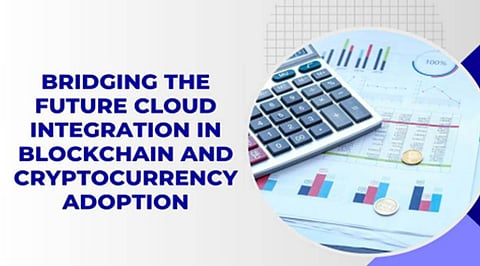

In this modern era, Narendra Bhargav Boggarapu, an expert in financial technologies, delves into the integration of cloud infrastructure with blockchain to transform global financial systems. His research highlights how these technologies streamline operations, enhance security, and enable innovative solutions across the financial sector, fundamentally altering traditional processes. By addressing inefficiencies, these advancements empower financial institutions to adapt to evolving demands while offering customers faster, more transparent, and secure services. These innovations are not only reshaping banking practices but also paving the way for greater financial inclusion worldwide. As technology continues to evolve, these systems will remain critical to the modernization of global financial ecosystems.
Blockchain integration with cloud infrastructure has transformed the traditional banking and financial system; it offers greater efficiency and transparency. It brought the near real time processing of transactions and literally shortens settlement times from days to mere seconds, a major technological stride forward. Distributed ledger systems further enhanced the technology to offer far greater transparency in its processes while reducing fraud-related incidents by 56% and increasing compliance with regulatory standards hugely. All this forms part of a more robust, customer-centric financial ecosystem.
The adoption of smart contracts has automated routine banking processes, eliminating inefficiencies and reducing operational costs by 38% across various sectors. These self-executing contracts leverage cloud computing resources to streamline workflows, ensuring faster execution and fewer documentation errors, with higher accuracy. Financial institutions have reported a 73% reduction in manual processing requirements, paving the way for improved customer experiences while reducing the administrative burden on operational teams globally.
Blockchain technology reduced processing times on cross-border payments from days to under four hours, representing a 94% improvement. With related costs having decreased by 51%, it has facilitated financial inclusion in underbanked regions and made international trade more accessible and efficient. The efficiency provides businesses and individuals with the seamless option of making international payments, thereby fostering global economic collaboration.
The integration of cloud infrastructure and blockchain further strengthens the scalability and resilience in financial operations, making it more robust and reliable under any situation. Hybrid cloud-blockchain systems can handle peak loads efficiently as it can process up to 150,000 transactions per minute while consistently delivering performance throughout. The scalability will ensure uninterrupted service during a high-demand period even while maintaining 99.996 percent synchronization accuracy across distributed nodes that support the growing needs of global financial institutions.
Cloud-integrated blockchain systems have redefined security protocols in financial operations by implementing advanced layers of cryptographic mechanisms and biometric verifications. These measures have reduced unauthorized access attempts by 92%, ensuring stronger data protection across networks. Furthermore, real-time auditing capabilities enhance compliance processes, reducing manual interventions by 85% and ensuring adherence to regulatory requirements with near-perfect accuracy. This dual focus on security and compliance builds trust among customers and stakeholders alike.
Decentralized finance platforms built on blockchain and cloud technologies disrupt the traditional models of banking and present new competition within the sector. Such platforms ensure higher transparency, lower reliance on intermediaries, and enable a more accessible approach to financial services for underbanked markets. So far, DeFi protocols have settled more than $350 billion in transactions, meaning a trend towards democratized financial systems focused on accessibility, efficiency, and full economic inclusivity for users from around the globe.
Blockchain integration has drastically improved customer satisfaction in the financial sector by streamlining processes and enhancing transaction visibility for users. Banks report an 89% increase in transaction tracking accuracy and a 66% reduction in complaint resolution times, demonstrating the technology’s customer impact. Instantaneous settlement capabilities and transparent processes have elevated service quality, building trust among customers, fostering loyalty, and redefining expectations for financial services.
The fusion of blockchain and cloud technologies is set to redefine financial ecosystems globally, driving efficiency, inclusivity, and innovation in the sector. By enabling smarter workflows, improved compliance, and scalable systems, these innovations promise to create more secure, efficient, and inclusive financial services with sustainable practices. However, addressing regulatory challenges and ensuring a balance between innovation and risk management will be pivotal in unlocking their full potential and maintaining trust.
In conclusion, Narendra Bhargav Boggarapu’s exploration of cloud integration in blockchain and cryptocurrency adoption underscores its transformative impact on global financial systems. By combining the efficiency of blockchain with the scalability of cloud infrastructure, these technologies are reshaping traditional banking models, fostering innovation, and driving financial democratization. As the financial sector evolves, this synergy promises a future of enhanced accessibility, transparency, and operational excellence, paving the way for a more inclusive global financial landscape.
